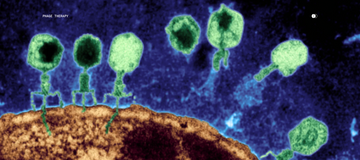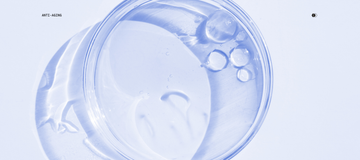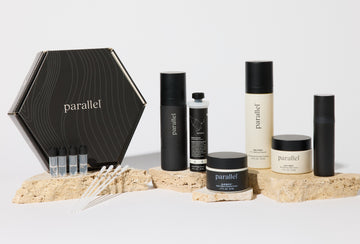The latest wellness trend flooding TikTok and Instagram promises glowing skin from the inside out—skincare drinks. From carrot "retinol shots" to collagen-infused beverages, millions are sipping their way to better skin. But before you juice your way to radiance, let's separate the science from the social media hype.
The Viral Appeal of Drinkable Skincare
Pinterest searches for "skincare drinks" have surged 176%, while Google searches for "drinks for skin" and "drink for glowing skin" have doubled in the past month. Popular recipes include carrot wellness shots mixed with turmeric and ginger (dubbed "retinol shots"), green juices packed with cucumber and celery, and collagen peptide beverages promising youthful skin.
The appeal is obvious: one simple drink instead of a multi-step skincare routine. It's TikTok-worthy, fits neatly into wellness culture, and sounds scientifically legitimate. But does drinking your skincare actually work?
The Truth About Wellness Drinks
While nutrition certainly impacts skin health, the relationship between what you drink and how your skin looks is nuanced. Let's look at a few examples:
Beta-Carotene and "Drinkable Retinol"
While social media may talk about "drinkable retinol," it doesn't actually exist. To understand why, you need to know the vitamin A family tree:
- Vitamin A (Retinol) - The base form of vitamin A
- Retinoids - The umbrella term for ALL vitamin A derivatives, including retinol, retinaldehyde, and retinoic acid (tretinoin)
- Beta-Carotene - A plant compound your body can convert to vitamin A/retinol
Carrots (and carrot juice) contain beta-carotene, which the body converts to vitamin A, also known as Retinol. Retinols can be found in skincare products, and tretinoin, one of the most powerful retinol derivatives, is used for anti-aging and acne control. However, a 12-week study of high beta-carotene intake showed only modest effects. The critical limitation is that the body converts beta-carotene to vitamin A in small amounts, and plant-based vitamin A doesn't deliver the same targeted, cell-level effects as topical retinoids.
Think of it this way: drinking carrot juice gives your body raw materials (beta-carotene) that it might convert to vitamin A, which might eventually reach your skin in minimal amounts. It's an indirect, inefficient pathway with modest results at best—primarily slight sun protection, not the wrinkle reduction, collagen stimulation, or cell turnover that actual high-quality topical retinoids provide.
Verdict on carrot "retinol" shots: Minimal skin benefits after 10-12 weeks. Not comparable to topical retinoids, and certainly not comparable to tretinoin Rx.
Biotin-Boosted Juices
Biotin (vitamin B7) is heavily marketed in wellness drinks and supplements for healthy hair, skin, and nails. But, the evidence on oral supplementation in drinks doesn't support the hype.
A systematic review found only 3 studies on oral biotin for hair growth. The highest quality study (double-blind, placebo-controlled) found no difference between biotin and placebo groups for hair growth. A comprehensive review concluded there is no evidence to suggest benefit from biotin supplementation unless you have a biotin deficiency, in which case biotin could be helpful.
In fairness, one study examined a topical compounded formulation containing minoxidil 10%, finasteride 0.1%, biotin 0.2%, and caffeine citrate 0.05% for male androgenetic alopecia, showing clinical efficacy—but this was a combination treatment, making it impossible to isolate biotin's specific contribution.
Verdict on biotin drinks: No proven benefits for skin, hair, or nails in healthy individuals without deficiency. However, it can be used as a topical in conjunction with proven clinical actives for potential added benefit.
Collagen Powders for Skin
Multiple randomized, placebo-controlled trials show that oral collagen peptide supplementation significantly increases skin hydration after 8 weeks, and that collagen density in the dermis significantly increases while fragmentation decreases after just 4 weeks. A meta-analysis of 26 studies involving 1,721 patients found that hydrolyzed collagen supplementation significantly improved both skin hydration and elasticity compared to placebo.
So yes, oral collagen supplements do work—but they take 4-12 weeks to show results and address only certain aspects of skin health (primarily hydration and elasticity). They won't treat acne, hyperpigmentation, fine lines, or the multiple signs of aging that prescription actives can address.
Verdict on collagen drinks: Clinically proven to improve hydration and elasticity. Recommend collagen supplementation in addition to using high-quality skincare and prescription actives.
You Still Need Skincare
While collagen drinks can improve hydration and elasticity over several months, high-quality skincare and prescription topical treatments deliver faster, more comprehensive results for multiple skin concerns simultaneously.
The science is very clear – if you apply the right clinical ingredients topically at the right concentration(s), you are placing actives directly where they're needed, without the digestive breakdown that oral supplements face.
Topical tretinoin is the gold standard for photoaging treatment, with decades of high-level scientific evidence showing effects on collagen synthesis, fibroblast activity, and inhibition of matrix metalloproteinases, with clinical improvements in fine wrinkles, rough texture, and mottled pigmentation visible after 3-6 months. You can read more about accessing a custom compounded Rx with tretinoin HERE.
The Parallel Health Advantage: Microbiome-Based Precision Over Hype
Parallel Health's Microbiome Dermatology™ approach fundamentally differs from viral wellness trends. Rather than hoping nutrients reach your skin in effective amounts after digestion, our custom-compounded prescriptions and precision microbiome skincare deliver clinically-dosed actives exactly where needed:
Prescription-Strength Actives That Transform Skin
- Tretinoin directly stimulates collagen production and accelerates cell turnover for anti-aging
- Hydroquinone targets melanin production to fade hyperpigmentation and dark spots
- Azelaic acid reduces inflammation while addressing both acne and pigmentation concerns
- Niacinamide strengthens the skin barrier, regulates sebum production, and reduces redness
- Sodium hyaluronate provides targeted, intense hydration at the molecular level
Will prescription topicals like Parallel Health's custom formulations deliver faster, more targeted, and more dramatic results?
The scientific evidence overwhelmingly says yes.
Clinical trials show topical tretinoin improves photoaged skin after 3-6 months, with the most clinically noticeable improvements occurring after six months of treatment —and that's with direct application addressing multiple concerns: wrinkles, texture, pigmentation, collagen production, and more.
Supporting Your Skin Microbiome
Our hero skin longevity products, including the Blue Biotic™ Multi-Effect Peptide Cream, goes further by supporting your skin's microbiome—the community of beneficial bacteria that influences everything from inflammation to barrier function to how your skin ages.
Parallel Health creates personalized treatment plans that address your specific concerns: acne, aging, hyperpigmentation, rosacea, or combination issues.
The Smart Approach: Combine Both (But Prioritize Topicals)
There's no reason you can't enjoy a collagen supplement for hydration benefits while using prescription topicals for comprehensive skin transformation. But if you're choosing one approach, prescription actives formulated for your unique skin microbiome will always deliver superior, faster, and more visible results.
Your skin deserves more than social media trends. It deserves precision science, clinically-proven ingredients, and a personalized approach that addresses your unique microbiome and skin concerns.
Ready to transform your skin with science? Discover how Parallel Health's MD-03 Protocol™ can give you the results that wellness drinks simply can't deliver.
References
- Proksch E, Segger D, Degwert J, et al. Oral supplementation of specific collagen peptides has beneficial effects on human skin physiology: a double-blind, placebo-controlled study. Skin Pharmacol Physiol. 2014;27(1):47-55. doi:10.1159/000351376
- Asserin J, Lati E, Shioya T, Prawitt J. The effect of oral collagen peptide supplementation on skin moisture and the dermal collagen network: evidence from an ex vivo model and randomized, placebo-controlled clinical trials. J Cosmet Dermatol. 2015;14(4):291-301. doi:10.1111/jocd.12174
- Yang Q, Li H, Zhang H, et al. Effects of Oral Collagen for Skin Anti-Aging: A Systematic Review and Meta-Analysis. Int J Mol Sci. 2023;24(10):8956. doi:10.3390/ijms24108956
- Mukherjee S, Date A, Patravale V, et al. Retinoids in the treatment of skin aging: an overview of clinical efficacy and safety. Clin Interv Aging. 2006;1(4):327-348. doi:10.2147/ciia.2006.1.4.327
- Kang S, Bergfeld W, Gottlieb AB, et al. Long-term efficacy and safety of tretinoin emollient cream 0.05% in the treatment of photodamaged facial skin: a two-year, randomized, placebo-controlled trial. Am J Clin Dermatol. 2005;6(4):245-253.
- Morreale M, Conforti C, Di Meo N, et al. Skin Anti-Aging Effect of Oral Vitamin A Supplementation in Combination with Topical Retinoic Acid Treatment. Cosmetics. 2023;10(5):144. doi:10.3390/cosmetics10050144
- Baswan SM, Klosner AE, Weir C, et al. Role of ingestible carotenoids in skin protection: A review of clinical evidence. Photodermatol Photoimmunol Photomed. 2021;37(6):490-504. doi:10.1111/phpp.12690
- Boelsma E, Hendriks HF, Roza L. Nutritional skin care: health effects of micronutrients and fatty acids. Am J Clin Nutr. 2001;73(5):853-864. doi:10.1093/ajcn/73.5.853
- beta carotene for skin ,
- carrot retinol shots ,
- collagen supplements skin ,
- compounded prescriptions for skin ,
- custom skincare ,
- drinkable skincare ,
- microbiome skincare ,
- oral collagen benefits ,
- prescription tretinoin vs oral supplements ,
- skin hydration supplements ,
- skincare drinks ,
- topical retinoids




























